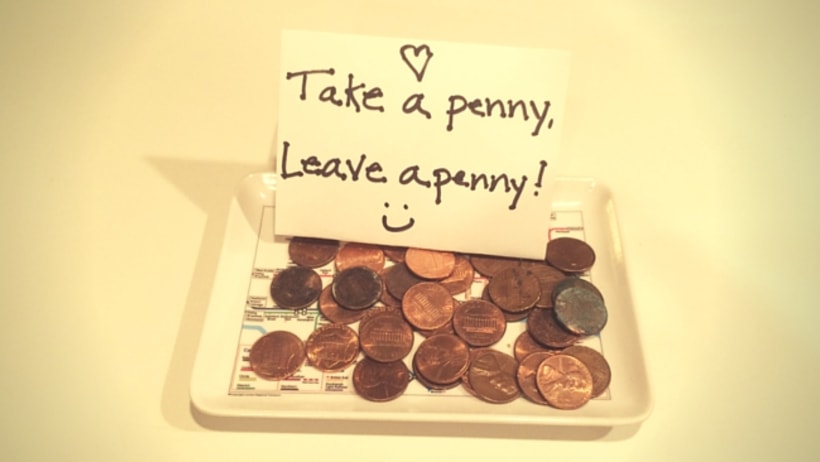“Need a penny, take a penny. Have a penny, give a penny.” I’m sure you’ve seen the little sign at a grocery store. It’s anonymous charity. The idea is that there exists a pair of strangers at any given time, one who needs the extra penny and one who has the extra change to supply it. But the change dish is open and accessible to all. In other words, everyone is presented with the same three options: give a penny, take a penny, or simply walk away. Everyone is equal in relation to the penny dish; it’s possible that a wealthy person is short of exact change for a purchase and just as possible that a poor person happens to have an extra penny to leave behind. After all, it’s just a penny. It’s not the status of the person on the giving or receiving end that matters; rather, it’s the participation in this simple, yet effective system that keeps things balanced.

This is not unlike a lesson we learn in Judaism. Our religion suggests that there are moments in which we must take care of one another regardless of our standing in society. Regardless of what you have individually, Jews are required to take food to mourners and to comfort the grieving. Regardless of your monetary standing, we are urged to make regular donations, even for a few dollars at a time, to support our various institutions.
This week we read parshat Korach, the narrative detailing the revolt of Korach. Korach breaks apart the priesthood and prepares a revolt, while Datan and Aviram, two other troublemakers, begin a revolt of their own. Chaos breaks out in the camp, and those who don’t see a purpose to the fight pull away, which turns out to be solid decision making as the earth opens up and swallows Korach and his followers.
In chapter 18, verse 26 we read “When you receive from the Israelites their tithes, which I have assigned to you as your share, you shall set aside from them one-tenth of the tithe as a gift to the Lord.” Specifically, every Israelite was expected to give 10% of his income to the Levites because the Levites had no other form of income. They were only expected to work with and assist the priests. However, the Levites themselves, who were living on gifts from others, were also required to tithe a tenth of what they received to the priests.
The lesson is that even those who rely on public support for their livelihood must give part of what they receive as tzedakah. The act of giving is one that can nourish the soul of the giver as well as sustain the receiver. The Torah in our text this week reminds us that, like the blind nature of the sign by the pennies, we may not all be equal in fortune or position, but we are all equally obligated to each other.
-Rabbi Eve Posen
Source: Give and Take – Parshat Korach 5776 – Rabbi Eve Posen



